#WasteReduction
Explore tagged Tumblr posts
Text
Holiday Inn

1. Energy Conservation: Holiday Inn is committed to energy conservation by implementing energy-efficient appliances and lighting throughout its premises, significantly reducing its carbon footprint.

2. Waste Transformation: This establishment takes waste transformation seriously, actively recycling and upcycling materials, ensuring minimal waste goes to landfills.

3. Hazardous Substances Management:
Holiday Inn demonstrates responsible hazardous substances management, ensuring the safety of its guests and staff through proper handling and disposal.
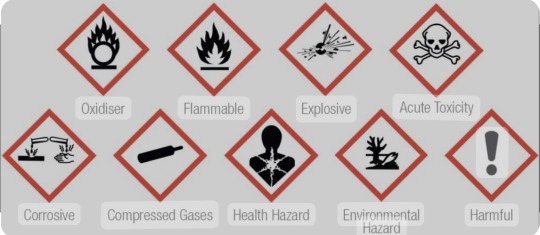
4. Sustainable Transport: Supporting sustainable transport, Holiday Inn offers bicycle rentals and collaborates with local eco-friendly transportation services to reduce the impact on the environment.

5. Market Factors: In response to market factors and increasing consumer demand for sustainability, Holiday Inn has adapted its business model to prioritize eco-friendly practices and locally sourced products.
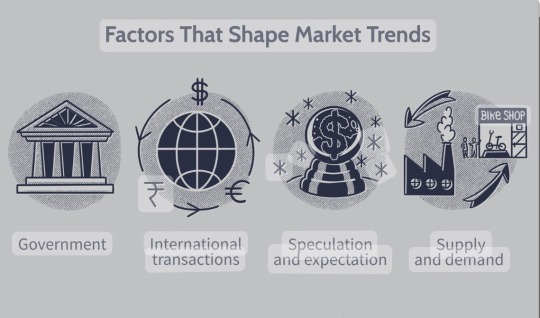
https://www.googleadservices.com/pagead/aclk?sa=L&ai=DChcSEwi1k-PI7rSCAxUM_cgKHZBNDgEYABACGgJxdQ&ae=2&gclid=Cj0KCQiAgK2qBhCHARIsAGACuzlTqtvyM5tuqirT9nUqT8RK4t8ySYzl6rnSmZvBymhEJy4MqlxutXMaAsvgEALw_wcB&sph&ohost=www.google.com&cid=CAESVuD2EkTKypJOCIQhLai-c4YsOJ3XaGIQP8zfx1DoDf2qp3W2wT_Q1Sdd3rapJAHAZ-moR-Hk5SYU9JGKhpvudax5tFOpNRiAjpCp84cwcUe1OvYdXwDM&sig=AOD64_2nP2KnlpZGq-j1p51R1Zy-OEeFfQ&q&adurl&ved=2ahUKEwjAltrI7rSCAxXclokEHf6EBcgQ0Qx6BAgLEAE
2 notes
·
View notes
Text


What Is a Caustic Recovery System?
A caustic recovery system recycles caustic soda used in industrial washing, reducing waste and cutting costs. It purifies used chemicals for reuse in industries like textiles and food processing.
Learn More: Caustic Recovery System
0 notes
Text
🚀 Looking for an affordable, compact, and powerful way to start EPS recycling?
Introducing the GREENMAX Mini Polystyrene Densifier M-C50 — the perfect lightweight solution for foam waste problems!
🧊 Handles 50kg EPS per hour 📏 Takes up just 1.5 m² (about the size of a box!) 🔥 Compresses foam at a 1:90 ratio 💡 Energy-efficient: only 9.7 kW ⚙️ Easy to use, easy to maintain ✅ Ideal for shops, small warehouses, and e-commerce stations
Turn loose EPS waste into stackable dense blocks and reclaim your storage space. Want extra features? Ask us about customized upgrades for your recycling needs!
📲 Click the WhatsApp button below and start your lightweight foam recycling journey today!
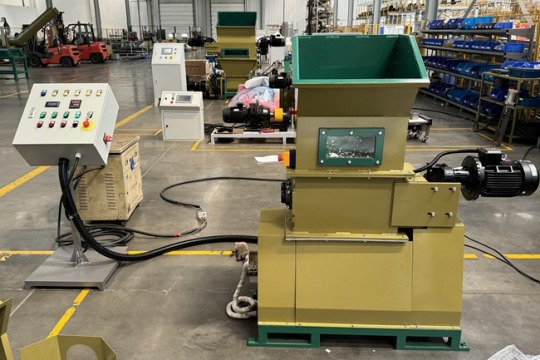
#EPSrecycling#GREENMAX#FoamRecycling#Sustainability#CircularEconomy#WasteReduction#PackagingWaste#RecyclingMachine#PolystyreneRecycling
0 notes
Text
How EPR Plastic Drives Circular Economy and Corporate Compliance
EPR plastic policies are reshaping how companies manage their packaging waste by placing the responsibility back on producers. Under Extended Producer Responsibility (EPR), businesses are required to collect, recycle, or responsibly dispose of the plastic they introduce into the market. This approach not only ensures better waste accountability but also supports the circular economy by encouraging material reuse and sustainable packaging innovations. By complying with EPR plastic regulations, companies not only meet legal standards but also build trust with eco-conscious consumers and contribute to a cleaner environment.
#EPRPlastic#ExtendedProducerResponsibility#PlasticWasteManagement#SustainablePackaging#EcoCompliance#PlasticResponsibility#CircularEconomy#GreenBusiness#WasteReduction#EPRPolicy#EcoFriendlyIndia#PlasticRecycling#PackagingSustainability#CorporateResponsibility#EnvironmentalCompliance
0 notes
Text
Lean Manufacturing Training – Boost Operational Efficiency and Minimize Waste
In today’s highly competitive industrial environment, Lean Manufacturing Training is essential for companies looking to optimize operations, eliminate waste, and improve overall productivity. This structured training helps teams at all levels understand and implement lean principles that reduce inefficiencies and create more value for customers.
Lean Manufacturing Training is based on the core principles of the Toyota Production System (TPS), which focuses on continuous improvement, value stream mapping, and waste elimination. Through this training, participants learn how to identify and eliminate the eight types of waste—overproduction, waiting, transport, overprocessing, inventory, motion, defects, and underutilized talent.
By implementing Lean Manufacturing Training, organizations benefit in the following ways:
Reduced production costs
Improved quality control
Increased employee engagement
Streamlined workflows and faster delivery times
Whether you are a manufacturer, service provider, or logistics company, Lean Manufacturing Training can be tailored to fit your specific operational needs. The training includes hands-on tools such as 5S (Sort, Set in order, Shine, Standardize, Sustain), Kaizen (continuous improvement), Kanban (visual workflow management), and Value Stream Mapping.
Lean Manufacturing Training is not just for large corporations; small and medium enterprises (SMEs) also gain tremendous value from lean implementation. By equipping frontline employees, supervisors, and managers with lean knowledge, organizations foster a culture of accountability and operational excellence.
Professionals who undergo Lean Manufacturing Training develop a keen eye for spotting inefficiencies, setting performance metrics, and driving improvement initiatives across departments.
Companies that invest in Lean Manufacturing Training often see long-term benefits such as increased profitability, better resource utilization, and enhanced customer satisfaction.
#LeanManufacturing#LeanManufacturingTraining#OperationalExcellence#LeanTools#WasteReduction#Kaizen#5S#ToyotaProductionSystem#ProcessImprovement#LeanImplementation
0 notes
Text

🌟 Become a Lean Practitioner and Lead the Change! 🌟
Are you ready to drive efficiency, eliminate waste, and improve organizational processes? Join our Live Online Instructor-Led Lean Practitioner Certification Training Program and gain the skills to implement Lean principles in your organization successfully.
Key Highlights:
✅ Instructor-Led Training: Engage in live, interactive sessions with expert Lean practitioners.
✅ Hands-on Learning: Apply Lean tools and techniques to real-world projects and case studies.
✅ Comprehensive Curriculum: Learn about Value Stream Mapping, 5S, Kaizen, Waste Reduction, and more.
✅ Global Certification: Earn an internationally recognized Lean Practitioner certification.
✅ Flexible Schedule: Learn at your own pace, with live online classes that fit your schedule.
💡 Why Choose Our Program?
Learn directly from experienced Lean professionals.
Access to exclusive study materials and resources.
Ongoing support and guidance even after the course ends.
Lifetime access to recorded sessions for review.
#LeanPractitioner#LeanCertification#ProcessImprovement#WasteReduction#Efficiency#LeanTools#5S#Kaizen#ValueStreamMapping#ContinuousImprovement#LeanTraining#BusinessExcellence#LeanThinking
0 notes
Text
What Are the Benefits of Smart Waste Disposal for Environmental Management in Taylor, TX?

Discover the advantages of smart waste disposal for environmental management in Taylor, TX. From reducing landfill use to improving recycling efficiency, this modern approach supports cleaner communities and long-term sustainability. Click here to learn more about how it benefits your area today. https://centraltexasdumpsterrental.com/benefits-of-smart-waste-disposal-for-environmental-management-in-taylor-tx/
#SmartWasteDisposal#EnvironmentalManagement#TaylorTX#WasteReduction#SustainableLiving#EcoFriendly#RecyclingMatters#SmartCitySolutions#GreenLiving#ReduceReuseRecycle#CleanCommunity#CleanerTexas#WasteManagementSolutions#GoGreen#SmartWasteTech#SustainableFuture#EcoSolutions#RecyclingEfficiency#LandfillReduction#SmartWasteSystems#EnvironmentalAwareness#WasteReform#SmartDisposalTX#EcoInnovation#TaylorTexasLiving#WasteSmartTX#SustainableTaylor#EcoFriendlySolutions
0 notes
Text
Making your brand eco-friendly doesn’t have to be complicated. With Biodegradable Packaging for Business, you can reduce waste and still stand out. At Ecopack, we help you switch to smarter, greener choices that customers notice and appreciate. It’s not just good for the planet—it’s good for business too. Explore sustainable solutions that make a real difference: https://ecopack.bio.
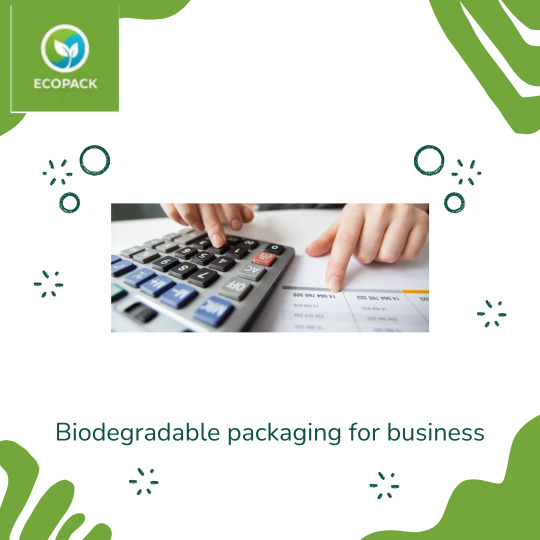
#EcoFriendlyBranding#BiodegradablePackaging#SustainableBusiness#GreenChoices#WasteReduction#EcopackSolutions#PlanetFriendly#SmartPackaging#ConsciousConsumerism#SustainableSolutions
0 notes
Text
Driving Environmental Responsibility with ISO 14001 Certification in Lagos

As environmental sustainability becomes a pressing priority worldwide, businesses in Lagos are stepping up their commitment to responsible practices. One of the most effective ways to demonstrate environmental stewardship is by obtaining ISO 14001 Certification in Lagos. This globally recognized Environmental Management System (EMS) standard helps organizations identify, manage, monitor, and control their environmental issues in a systematic and efficient manner.
For companies operating in industrial zones, construction, manufacturing, or even the service sector, environmental performance is no longer optional — it’s essential. ISO 14001 provides a framework that not only ensures compliance with regulatory requirements but also improves overall environmental performance and operational efficiency.
Working with expert ISO 14001 Consultants in Lagos allows businesses to effectively implement the EMS without getting lost in technical jargon or unnecessary complexity. These professionals bring clarity and strategy to the certification process. They assess current practices, identify gaps, and develop customized solutions that align with the standard’s core principles.
One of the key advantages of ISO 14001 is the reduction of waste and energy use. This directly translates to cost savings and improved resource efficiency. Organizations that adopt this standard often discover opportunities to recycle, reduce emissions, and control pollution — measures that benefit both the environment and the bottom line.
Beyond cost efficiency, ISO 14001 Certification in Lagos boosts an organization’s credibility. Customers, investors, and regulators increasingly prefer businesses that take environmental impact seriously. Certification sends a strong message: your business is responsible, sustainable, and future-ready.
In Lagos, where urbanization and industrial activity are rapidly expanding, the need for proactive environmental management is more urgent than ever. Implementing ISO 14001 not only ensures compliance with local and international environmental laws but also positions your organization as a market leader committed to sustainable growth.
Additionally, an EMS promotes a culture of continuous improvement. Through regular audits and management reviews, organizations are constantly refining their environmental strategies. This makes them more adaptable to changes in environmental regulations, stakeholder expectations, and market dynamics.
Employee engagement is another often-overlooked benefit of ISO 14001. With well-defined environmental objectives and training, your team becomes more aware of their roles in achieving sustainability goals. This shared sense of purpose can boost morale and create a culture of accountability and innovation.
Whether you’re aiming to enter new markets, meet tender requirements, or simply operate more efficiently, partnering with ISO 14001 Consultants in Lagos is a smart move. Their experience ensures that the implementation process is smooth, effective, and aligned with your business goals.
ISO 14001 is not just about ticking compliance checklists — it’s about integrating sustainability into the core of your business. As environmental challenges continue to evolve, companies that lead with responsible practices will not only survive but thrive in the long term.
Contact Us
For expert guidance get in touch with us:
Website: www.qualitcert.com
Email: [email protected]
Phone: +91 9686433300
#ISO14001#EnvironmentalManagement#SustainableBusiness#LagosBusiness#ISO14001Consultants#ISOCertificationLagos#GreenBusiness#WasteReduction#EnvironmentalCompliance#SustainablePractices#EMS#EcoFriendlyBusiness#ISOStandards#PollutionPrevention#ISO14001Certification#BusinessSustainability#GoGreenNigeria#LagosIndustry#Qualitcert#ISOExperts
0 notes
Text
#wastemanagement#wastecompactor#compactor#environmentalsolutions#sustainability#recycling#industrialwaste#ecoawareness#smartbusiness#ecofriendlysolutions#wastereduction#greentechnology#cleanplanet#wastehandling#compactwaste#industrialsolutions#wastecontrol#NextOilSolutions#OEGcompactors#wastemanagementKuwait#oilandgas
0 notes
Text
Food Waste Recycling Machine Market Growth Fueled by Rising Environmental Awareness and Stringent Waste Management Policies
Introduction
The Food Waste Recycling Machine Market is experiencing substantial growth driven by heightened environmental awareness and increasingly stringent governmental policies on waste management. With global food waste contributing significantly to environmental degradation, the adoption of food waste recycling machines has become a pivotal solution for sustainable waste disposal. This article explores the factors propelling the market growth, the key technologies involved, and future outlooks.

Rising Environmental Awareness
Globally, environmental concerns such as climate change, pollution, and depletion of natural resources are prompting governments, organizations, and individuals to rethink waste management strategies. Food waste, which accounts for a significant portion of municipal solid waste, poses both environmental and economic challenges. When improperly disposed of, food waste emits methane, a potent greenhouse gas contributing to global warming.
In response, public awareness campaigns and sustainability initiatives have amplified the demand for eco-friendly waste management solutions. Recycling machines designed specifically for food waste allow for efficient on-site processing, reducing landfill use and turning waste into valuable by-products like compost and biogas.
Impact of Stringent Waste Management Policies
Regulatory frameworks worldwide have tightened, focusing on waste reduction, segregation, and recycling targets. Many countries have implemented bans on organic waste landfill disposal, mandatory waste segregation rules, and incentives for adopting green technologies.
For example, the European Union's Circular Economy Action Plan encourages member states to minimize food waste and invest in recycling technologies. Similarly, regions in North America and Asia are enacting policies that support the integration of food waste recycling machines in residential, commercial, and industrial settings.
These policies drive investments in advanced recycling machines, fostering innovation and adoption across sectors. Government incentives such as subsidies, tax benefits, and grants further support market growth.
Technological Advancements in Food Waste Recycling Machines
Innovations in food waste recycling machines have enhanced efficiency, usability, and environmental impact. Modern machines utilize aerobic and anaerobic digestion, dehydration, and composting technologies to process food waste rapidly and hygienically.
Energy-efficient designs, compact models, and smart features like IoT integration for real-time monitoring and operation optimization have made these machines suitable for diverse environments—from large-scale industrial facilities to small households.
The development of hybrid systems combining multiple technologies also contributes to improved waste conversion rates and energy recovery, aligning with sustainable development goals.
Market Segmentation and Key Applications
The Food Waste Recycling Machine Market is segmented based on type, end-user, and geography.
By Type: Machines are broadly categorized into composters, dehydrators, digesters, and hybrid systems. Each offers unique benefits and suits different waste types and volumes.
By End-User: Key sectors include residential, commercial (restaurants, hotels, supermarkets), and industrial (food processing units, agricultural sectors). Commercial adoption is notably rising due to increasing waste volumes and regulatory pressures.
By Geography: North America, Europe, and Asia-Pacific lead the market due to progressive regulations and awareness. Emerging economies are also witnessing growth as infrastructure improves.
Challenges and Market Resilience
Despite promising growth, the market faces challenges such as high initial costs, lack of consumer awareness in certain regions, and logistical constraints in waste segregation. However, continuous technological improvements and increasing environmental campaigns are mitigating these barriers.
Companies are focusing on cost-effective, user-friendly models to enhance market penetration. Educational initiatives and collaborations between public and private sectors are also playing vital roles in boosting adoption.
Future Outlook
The future of the Food Waste Recycling Machine Market looks promising, driven by the convergence of environmental imperatives and technological progress. Increasing global commitments to reduce carbon footprints and achieve sustainable development targets will sustain market momentum.
Emerging trends such as AI-driven waste sorting, blockchain for supply chain transparency, and integration with smart city initiatives are expected to revolutionize the market further. Additionally, rising investments in circular economy frameworks and waste-to-energy projects will create new growth avenues.
Conclusion
The Food Waste Recycling Machine Market's growth is intrinsically linked to the escalating environmental concerns and regulatory frameworks emphasizing sustainable waste management. As governments and industries continue to prioritize eco-friendly solutions, the demand for efficient food waste recycling machines is set to soar, fostering a greener and more sustainable future.
#FoodWasteRecyclingMachine#WasteManagement#EnvironmentalSustainability#RecyclingTechnology#GreenTechnology#WasteReduction#CircularEconomy#SustainableDevelopment#OrganicWaste#FoodWasteRecycling
0 notes
Text
Radiology Practices
Safe Radiology Practice for a safer world, safer health
On World Health Day 2022, WHO will focus global attention on urgent actions needed to keep humans and the planet healthy and foster a movement to create societies focused on well-being.
As per WHO estimates, more than 13 million deaths around the world each year can be attributed to avoidable environmental causes. This includes the climate crisis which is the single biggest health threat facing humanity. The climate crisis is also a health crisis.
On this occasion, Aster Medical Imaging focuses on the role of radiology in this crisis and the need to promote an environmentally sustainable radiology practice.
A 2021 study published in the Journal of Vascular and Interventional Radiology analyzed greenhouse gases generated by a hospital-based interventional radiology (IR) department in a typical five-day workweek. The researchers concluded that the practice of IR generates substantial greenhouse gas volumes, a majority of which come from energy used to maintain climate control in the IR suite. They found that more than half of the emissions that were generated by the climate control system, and ultimately about a quarter of the emissions produced during the entire study, were generated at night and on weekend hours when the IR suite is rarely in use. Read more here about Radiology Practices
#radiology#sustainability#healthcare#environment#wasteReduction#sustainablehealthcare#energyefficiency#greenimaging#ecofriendly#procurement#greenhealthcare#responsibleSourcing#digitalhealth#workflow#teleradiology#medicalimaging#medical care#medical imaging#ctscan#mri#ultrasound#aster
0 notes
Text
Colorimetric Indicator Label Market growth driven by increasing demand for real-time product freshness monitoring

The Colorimetric Indicator Label Market is experiencing rapid growth, driven largely by the increasing demand for real-time product freshness monitoring across various industries, particularly in the food and pharmaceutical sectors. Colorimetric indicator labels are revolutionizing how consumers and businesses track the quality and freshness of products, providing a simple yet effective way to assess whether goods are still within their optimal usability period. As consumer demand for transparency and convenience grows, these innovative labels are playing a critical role in ensuring product safety, reducing waste, and enhancing consumer trust.
Colorimetric indicator labels, which change color based on the time or temperature a product has been exposed to, are becoming an essential tool for ensuring the freshness of products in both perishable goods and pharmaceuticals. By offering instant, easily interpretable indicators, these labels help businesses manage product quality while empowering consumers to make informed purchasing decisions.
The Role of Colorimetric Indicator Labels in Real-Time Freshness Monitoring
Colorimetric indicator labels work by providing visual cues that change color in response to environmental conditions like temperature, humidity, or exposure to certain chemicals. This real-time feedback allows both businesses and consumers to gauge the freshness of a product without needing specialized equipment or extensive testing. The simplicity of these labels makes them particularly appealing in industries where freshness is a key factor, such as food packaging and pharmaceuticals.
1. Food Industry: Ensuring Freshness and Reducing Waste
In the food industry, especially in the case of perishable items, freshness is crucial for both consumer satisfaction and safety. Colorimetric indicator labels are increasingly being used to monitor the shelf life of food products, from dairy to meat and produce. These labels provide a visible, easy-to-understand signal that shows whether the product has been exposed to temperatures outside the optimal range, which can lead to spoilage and a loss in quality.
By offering real-time feedback, businesses can prevent food waste and ensure that consumers receive products that are fresh and safe. Retailers, in particular, are adopting colorimetric labels as part of their efforts to reduce product waste, which has both financial and environmental benefits. With consumers becoming more aware of sustainability issues, these labels are helping companies align with green initiatives while simultaneously offering better value to their customers.
2. Pharmaceutical Industry: Enhancing Product Safety
The Colorimetric Indicator Label Market is also seeing strong adoption in the pharmaceutical sector. Temperature and time-sensitive drugs, vaccines, and other medical products require strict control to maintain their efficacy. Any deviation from the prescribed storage conditions can lead to degradation and reduced potency, which can be dangerous for patients.
Colorimetric indicator labels offer a solution by providing a clear, visual cue when pharmaceuticals have been exposed to unsafe temperatures or conditions. This gives pharmaceutical manufacturers and distributors a real-time indication of whether a product is still viable and safe for use. The integration of colorimetric labels into pharmaceutical packaging is contributing to improved product safety and trust in the pharmaceutical supply chain.
3. Consumer Trust and Transparency
Consumers today are increasingly concerned with the transparency of the products they purchase. With growing interest in product quality, sustainability, and safety, colorimetric indicator labels provide consumers with direct access to the information they need to make informed decisions. By allowing consumers to visually assess a product's freshness, these labels increase trust and encourage brand loyalty. This transparency not only helps boost sales but also improves the overall reputation of businesses in the market.
Factors Driving the Growth of the Colorimetric Indicator Label Market
Several factors are driving the Colorimetric Indicator Label Market forward, contributing to the widespread adoption of these labels across multiple industries:
1. Increasing Consumer Demand for Freshness and Quality
As consumers become more health-conscious and quality-driven, there is a growing demand for products that meet their expectations for freshness and safety. Colorimetric indicator labels provide an easy way for consumers to verify that the products they purchase are fresh, thereby driving their adoption in industries that prioritize freshness, such as food and beverages.
2. Technological Advancements and Innovation
The continuous advancement in material science and technology is making colorimetric indicator labels more sophisticated, accurate, and affordable. New technologies are enabling more precise color changes that respond to specific temperature ranges or time exposures, improving the reliability of these labels in real-world conditions. As the technology becomes more refined, it is becoming increasingly accessible to businesses of all sizes.
3. Sustainability and Waste Reduction
With sustainability becoming a top priority for both businesses and consumers, colorimetric labels offer an effective solution to reduce waste. By providing real-time feedback on product freshness, these labels help businesses reduce spoilage and ensure that products are not wasted. This aligns with the global push for more sustainable business practices and helps companies contribute to the reduction of food waste, which is a significant environmental concern.
4. Regulatory Compliance and Safety Standards
In industries like food and pharmaceuticals, strict regulatory compliance is essential. Colorimetric indicator labels can help businesses meet these regulatory requirements by providing a straightforward and reliable way to track product conditions throughout the supply chain. With increasing regulatory oversight, these labels offer a simple solution for ensuring that products remain within safe and effective conditions.
The Future of the Colorimetric Indicator Label Market
Looking ahead, the Colorimetric Indicator Label Market is expected to continue growing, driven by the increasing demand for real-time monitoring solutions in various industries. As the technology behind these labels improves, they are likely to become even more advanced, offering greater accuracy and flexibility in their applications. The market will likely expand beyond food and pharmaceuticals into other industries such as cosmetics, electronics, and even logistics, where tracking environmental conditions is critical.
By offering an intuitive, affordable, and effective solution for freshness monitoring, colorimetric indicator labels are positioned to play a key role in improving product quality, consumer safety, and sustainability in the years to come.
#ColorimetricIndicatorLabels#PackagingInnovation#FreshnessMonitoring#Sustainability#FoodSafety#PharmaceuticalPackaging#ConsumerTrust#SupplyChainTransparency#AgroPackaging#PharmaPackaging#ProductQuality#Smart Packaging#RealTimeFreshness#WasteReduction#LabelTechnology
0 notes
Text
The Role of Individuals and Communities in Reducing Plastic Waste
As the world shifts towards sustainability, compostable trash bags are emerging as a game-changer in waste management. Made from plant-based materials, these bags break down naturally in composting conditions, leaving no harmful residues behind. Unlike traditional plastic, compostable trash bags reduce landfill load, support soil health, and lower pollution. They’re ideal for handling kitchen waste, food scraps, and organic materials. By adopting compostable solutions, households and businesses can take a major step toward eco-friendly living. The future of waste disposal is green—and it starts with smarter bag choices.
#CompostableTrashBags#EcoFriendlyBags#SustainableWasteManagement#PlasticFreeLiving#CompostablePackaging#GreenLiving#ZeroWasteHome#EcoConsciousChoices#WasteReduction#GoCompostable#BiodegradableBags#CleanAndGreen#SustainableSolutions#EcoFriendlyAlternatives#FutureOfWaste
0 notes
Text
Lean Management Consulting: Building a Culture of Continuous Improvement
In today’s volatile and complex business environment, organizations must be agile, efficient, and relentlessly focused on customer value. That’s where Lean Management comes into play—not just as a toolkit, but as a transformational management system.
At Seicho Consulting, we don’t just implement Lean—we help you build a culture of continuous improvement that drives strategic outcomes, enhances operational performance, and engages people at every level.
🚀 What is Lean Management?
Lean Management is more than reducing waste—it's a mindset.
It’s about:
Aligning strategy with execution
Empowering people to solve problems at the source
Structuring operations to flow smoothly
Delivering consistent value with minimal effort and resources
Whether you’re a manufacturer, service provider, or administrative organization, Lean helps you transform how your teams think, act, and grow.
🔧 Our Lean Management Services
At Seicho Consulting, we offer a full suite of Lean Management Consulting solutions tailored to your industry, scale, and growth stage:
✅ Lean Transformation Strategy & Roadmap
We co-create a structured rollout plan for Lean adoption, fully aligned with your long-term business objectives.
✅ Leadership Coaching & Change Management
We guide your leadership team in becoming Lean change agents, ensuring transformation is not just top-down but sustainable.
✅ Gemba Walks & Visual Management Systems
We improve transparency and accountability with on-site observation and visual systems that expose process gaps and flow inefficiencies.
✅ Team Engagement & Problem Solving Skills
Empowered teams drive improvement. We help your staff build the capability to identify and eliminate problems at the root.
✅ KPI Development & Performance Tracking
We design clear, actionable KPIs that reflect true business performance and guide real-time decision-making.
✅ Layered Audits & Sustainment Plans
Lean doesn’t end with implementation. We install a structured audit and sustainment system to protect and evolve your Lean culture.
🏭 Industries We Serve
Our Lean Management approach has helped transform:
Manufacturing & Process Industries
Healthcare & Service-based Organizations
Administrative & Office Functions
SMEs and Corporates seeking cultural change
Whether you’re improving shop floor operations or streamlining service workflows, Lean principles are universally applicable.
📈 The Impact of Lean Management
By applying Lean thinking across your value stream, you unlock:
🔄 Reduced operational waste
⚡ Faster and more consistent output
🧠 Increased employee ownership and problem-solving
📊 Data-driven agility and continuous learning
💰 Higher value at lower operating costs
🌟 Why Choose Seicho Consulting?
What sets us apart is our depth and discipline:
✔ Hands-on experience across 50+ organizations
✔ Custom strategies for your industry, size, and structure
✔ Integration with TPM, 5S, VSM, TQM, and ERP systems
✔ Focus on culture transformation, not just tool implementation
✔ Tactical and strategic approach—ground-level change backed by C-suite alignment
💬 Let’s Build Your Lean Culture
Lean isn’t a one-off initiative. It’s a way of thinking, managing, and leading. If you're looking to make your organization more efficient, more engaged, and more aligned with customer value—we’re ready to help.
📞 Contact Seicho Consulting today to schedule a consultation and start your journey toward continuous improvement.
#LeanManagement#LeanManagementConsulting#ContinuousImprovement#OperationalExcellence#BusinessTransformation#LeanThinking#ProcessImprovement#Kaizen#GembaWalk#VisualManagement#LeanCulture#LeadershipDevelopment#SeichoConsulting#WasteReduction#LeanStrategy#BusinessConsulting#ChangeManagement#ProductivityImprovement#ManufacturingConsulting#ServiceExcellence
0 notes
Text
How Technology is Transforming Dumpster Rentals and Waste Management
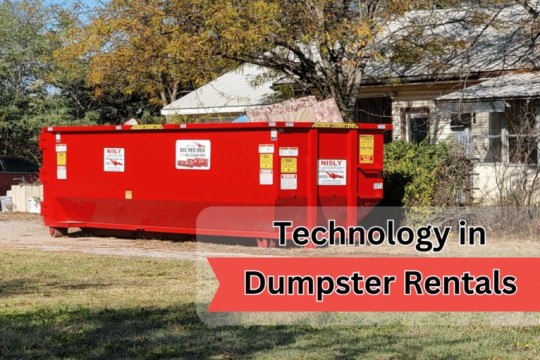
Discover how technology is transforming dumpster rentals and waste management through smart dumpsters, AI-powered recycling, mobile apps, and IoT integration. These innovations boost efficiency and sustainability in waste handling. Visit us today to explore smarter solutions for your waste needs. https://centraltexasdumpsterrental.com/how-technology-is-transforming-dumpster-rentals-and-waste-management/
#DumpsterRental#WasteManagement#SmartDumpster#AITechnology#EcoFriendly#RecyclingInnovation#Sustainability#WasteSolutions#SmartWaste#IoTIntegration#MobileApps#GreenTech#WasteReduction#CircularEconomy#CleanTech#EnvironmentalTech#TrashTech#SustainableLiving#TechForGood#SmartCities#WasteEfficiency#RecycleMore#DigitalWasteManagement#WasteHandling#SmartRecycling#ZeroWaste#WasteInnovation#EcoInnovation#GreenWaste#FutureOfWaste
0 notes